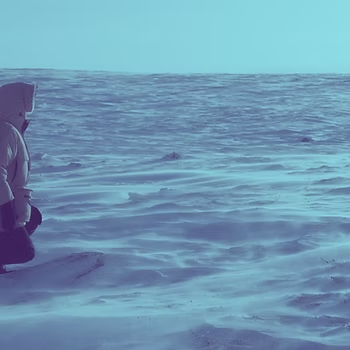"The Visitor" by Lorraine Murphy
- Jul 10, 2022
- 3 min read

“Loveen, sit down. We need to talk.”
The old woman sits uninvited at your kitchen table in a torn grey pinafore and filthy shirt, her ratty white hair hanging down her curved back. You didn’t hear her come in.
“Terrible things happened in there.” She points her bony finger at the Non-Offence Hibernian Official Psychiatric Establishment (NO HOPE), on whose grounds your house sits. She’s been coming a while now, ever since the baby was born.
“Twas different in those days. It was an asylum to keep folks safe from lunatics, but there were more sane people in there than out here. People with depression, or fights over land, or even women going through the change. Nothing wrong with them, that was until they got at them with the electric shocks and the drug trials.” She touches her lined brow. “Wasn’t right what I saw in there. ’Twas cruel. Evil even.”
You raise an eyebrow and she catches you with her bloodshot eyes. “All’s I did wrong was get pregnant at 16, wasn’t my fault. It was old Jack Flood’s. I wanted nothing to do with him but he forced himself on me. Daddy told Father Michael and they signed me in there. I had the baby with no help and no stitches, but they let me feed him. Oh, he was a gorgeous little fella, full of smiles. Adam, I called him. I fell in love and hope but a day short of his first birthday, I went to the nursery to feed him and his metal cot was empty. They’d sent him to America. I can still smell his warm, milky head. Nobody ever came to let me out. You had to be signed out you see. They left me in there to rot.”
Cradling your hot mug, you wipe a tear as the November rain bashes the window panes. It’s only three o’clock but daylight deserts the small kitchen, replaced by a nuclear yellow glare from the lights in the six-storey, grey-bricked Victorian hospital over your garden wall. Your tummy cries out for the hot chocolate and you can’t recall when you last ate. Or slept. The baby cries out from upstairs and the only part of you still alive wants to die. She never stops crying. Colic, the doctors say. It will pass.
“They’re here,” she says. The doorbell rings and you drop your mug. It smashes and boiling brown liquid splashes all over the filthy floor. You can’t recall when you last washed the floor tiles. Or the dishes. Or yourself.
She reaches for your scalded hand. “Pet, listen to me. It’s the ambulance and they’re here to help you. You’re not well. Let them in like a good girl.”
You dash out to the hallway where the baby’s screams fight for attention with the blue flashing lights of an ambulance. “I can’t leave the baby.”
She’s behind you now. “The baby will be fine. Your mother will look after her.” When you turn to object, to say your mother couldn’t be on her way because she is dead over ten years, the old woman has vanished.
That’s two years ago. Life is so much better since that day thanks to a combination of therapy, medication and plenty of fresh air. All was great until baby David arrived last month. He’s not sleeping, the doctors say it’s colic. Coming into the kitchen, you don’t have to look to know she’s there, even though you locked the door. She sits at your kitchen table in the same pinafore and shirt, her ratty white hair still hanging down her crooked back.
“Loveen, sit down. We need to talk.”





Comments